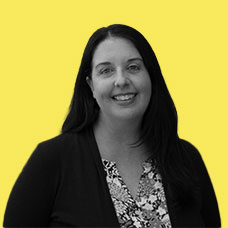Peter Mirandi
Peter Mirandi has more than 30 years of local public health experience in several Massachusetts communities.

Read Time: 4 minutes
Published:
Peter Mirandi has more than 30 years of local public health experience in several Massachusetts communities. He talks about how he approaches public health leadership from the everyday to a crisis.
Public health is more than just a job for Peter Mirandi (SPH ‘93). It’s a calling that has him working post-retirement because a global pandemic meant he couldn’t stay on the sidelines.
Mirandi retired in early 2020 after more than 30 years with the Danvers Health Department, just before the state of emergency was declared in Massachusetts due to Covid-19. He headed down to Florida as planned, but six months later, jumped back in to local public health as interim health director in Reading. During this past year in Reading, Mirandi has reorganized the department, secured office space, and recruited a new health director, all while providing public health leadership during an unprecedented time.
“Prior to the pandemic, it was all about prevention,” said Mirandi, who is licensed as a registered sanitarian, or environmental health specialist. He highlighted some of the big things public health tackled — tobacco control, environmental tobacco smoke, removing lead in homes, and emergency preparedness.
And then, seemingly overnight, the day-to-day rhythm of local public health – prevention programs, inspections, flu clinics and more — was upended.
“The pandemic was the real deal. Doesn’t get any more real,” Mirandi said, adding he doesn’t like to make dire predictions, but it’s sometimes hard not to go down a dark path. “Last year, we saw death rates that were incredible. And nursing homes and people with preexisting conditions are one thing. But when your healthy children are being buried, it messes up a society for a long time.”
And when things get real, the finger pointing can begin. Mirandi said he finds it more productive to work with peers and higher-ups in state and federal public health than to criticize.
“Maybe it was from my military background as a young man. But I believe in the organization or the chain of command, and I think we had competent people from the local health officer – health director – all the way up the line,” Mirandi said. “We had good people all the time throughout my career and there was no reason to lose confidence.”
The pandemic highlighted a public health challenge Mirandi has focused on since the very early days of his career – our food supply. He arrived in local public health after a stint in the Coast Guard during the Vietnam War, and worked for NOAA Fisheries developing food safety standards for fish from catch to point-of-sale.
“Our food supply is a lot more fragile than we want to believe,” he said, recalling the pandemic’s empty grocery stores shelves, freezers and coolers that are still barely stocked in some places.
Mirandi’s public health concerns extend more broadly to climate change. He’s the kind of guy who likes to ask people if they know where their trash ends up – it’s not a landfill – and takes the opportunity to explain how Massachusetts trash is incinerated.
“Here, landfills have been capped for a lot of years. We transport [trash] to incinerators that pump it into the atmosphere,” Mirandi said, going on to explain how he enjoys jumping at an opportunity to get someone to rethink trash disposal in the context of climate change. “When people tune into that, they think, that’s where our solid waste goes?”
Now that he’s handed the Reading job on to his replacement, Mirandi is content to consult where he’s needed – local health departments always need qualified public health practitioners, he says. And he brings his experienced approach to working within communities that focus on collaboration over compromise.
“When you compromise, everybody has to give something up to find a solution that we can all just kind of live with. That’s easy. Collaborating, inventing measures that people can live with, literally; they don’t have to give things up. You just modify, reframe the issue until you can come up with a pure collaboration so nobody’s losing things. We’re just reaching consensus around common goals.”
This article is part of an occasional Public Health Post series profiling local public health professionals in Massachusetts. At this turning point for public health, this series will ask the “boots on the ground” people who led their communities through the pandemic their lessons learned with an eye toward what’s next for local public health.
Photo provided by Peter Mirandi



